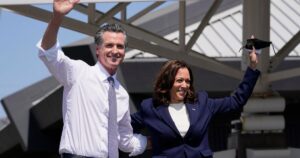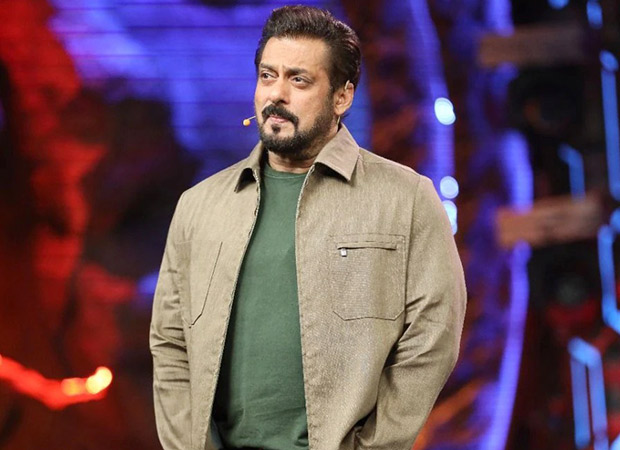Developing countries should prioritise swift trade agreements with the United States, the President of the World Bank, Ajay Banga, told AFP following high-level meetings in Washington. Speaking during the World Bank and IMF Spring Meetings, Banga emphasised the urgency of negotiating with the US, especially amidst the unpredictable trade policies under President Donald Trump, whose tariffs have unsettled markets and dented investor confidence.
Banga advised developing nations to act quickly, then focus on lowering trade barriers and improving regional commerce. Since January, Trump has imposed baseline tariffs of 10% on most countries, with steeper duties on China and specific sectors such as steel and cars, though some measures are temporarily on hold.
On criticism from US Treasury Secretary Scott Bessent, Banga acknowledged China’s development status is debatable, noting that a nation of its size and capability should gradually reduce its borrowing from the World Bank.
President Donald Trump said Chinese President Xi Jinping called him and he doesn’t think it was a sign of weakness on his behalf. Trump said this in an interview given on Tuesday to TIME for its exclusive ‘Inside Trump’s First 100 Days’ published Friday morning. The claim of the call comes as the US and China are locked in a bitter battle of tariffs with no country giving in. But while the US says negotiations with China are on, the Chinese side has dismissed it.
China is considering exempting some U.S. imports from its 125% tariffs and is asking businesses to identify goods that could be eligible in the biggest sign yet that Beijing is worried about the economic fallout from its trade war with Washington, Reuters reported.
A Ministry of Commerce taskforce is collecting lists of items that could be exempted from tariffs and is asking companies to submit their own requests, according to a source who spoke on condition of anonymity.
Financial news magazine Caijing reported on Friday citing sources that Beijing was preparing to include eight semiconductor-related items, although not memory chips.
“The Chinese government, for example, has been asking our companies what sort of things are you importing to China from the U.S. that you cannot find anywhere else and so would shut down your supply chain,” American Chamber of Commerce in China President Michael Hart said on Friday.
Some chamber members say they have imported goods in the past week without the new tariffs being applied, Hart added.
China’s top leaders called on Friday to step up support for the economy and oppose “unilateral bullying” in global trade, according to a meeting readout published by state media.
The comments were a veiled rebuke of hefty tariffs recently imposed on China by US President Donald Trump, which have triggered a high-stakes tit-for-tat trade battle between the world’s two largest economies.
The Chinese Communist Party’s top decision-making body pledged to “work with the international community to actively uphold multilateralism and oppose unilateral bullying practices”, Xinhua reported.
The brutal trade war comes as China’s economy strains under the weight of longstanding woes in the property sector and reluctance of consumers to pull out their wallets.
The Politburo meeting, which was attended by President Xi Jinping, saw leaders discuss a range of domestic economic issues, emphasising the need to “enhance the role of consumption in stimulating economic growth”, according to Xinhua.
They also called for action to increase incomes and “vigorously develop service consumption”, as well as the implementation of key rate cuts at “appropriate times”.
Asian stocks climbed on Friday, driven by a strong rally on Wall Street, robust quarterly earnings from Alphabet, and renewed optimism around trade relations under US President Donald Trump.
Indian stock indices, BSE Sensex and Nifty50, opened higher, with the Sensex crossing 80,100 and Nifty50 surpassing 24,350. After seven days of gains, the market paused on Thursday, ending in the red due to cautious investor sentiment. Foreign portfolio investors made net purchases of Rs 8,250 crore, while domestic investors sold Rs 534 crore. Market direction will likely depend on global trends and upcoming Q4 earnings.
Meanwhile, Tokyo’s Nikkei rose 1 per cent, with gains also seen in Hong Kong and Shanghai. The Nikkei’s rise came despite a major profit warning from Nissan, which projected losses of up to $5.3 billion for fiscal 2024–25. Still, shares of the automaker jumped more than 3 per cent on Friday. Bloomberg Intelligence analyst Tatsuo Yoshida said markets recognize Nissan is “moving ahead toward turnaround,” noting that booking impairment losses and restructuring charges is a necessary step forward.
Seoul’s benchmark index gained 0.5 per cent after US Treasury Secretary Scott Bessent suggested a potential trade “understanding” with South Korea could be reached by next week.
Positive momentum extended across other Asia-Pacific markets, including Taipei, Sydney, Singapore, Manila, and Wellington.
Investor sentiment was further lifted by Alphabet’s impressive quarterly results. The Google parent reported a $34.5 billion profit for the quarter, with revenue up 12 per cent year-over-year to $90.2 billion. Its cloud division saw especially strong growth, rising 28 per cent to $12.3 billion.
A dozen states, most of them led by Democrats, sued President Donald Trump over his tariffs on Wednesday, arguing that he has no power to “arbitrarily impose tariffs as he has done here”.
Contending that only Congress has the power to legislate tariffs, the states are asking the court to block the Trump administration from enforcing what they said were unlawful tariffs.
“These edicts reflect a national trade policy that now hinges on the president’s whims rather than the sound exercise of his lawful authority,” said the lawsuit. The states, including New York and Oregon, are the latest parties to take the Trump government to court over tariffs. It comes after California filed its own lawsuit last week, saying the escalated trade war has caused “immediate and irreparable harm” to that state’s economy.
“When a president pushes an unlawful policy that drives up prices at the grocery store and spikes utility bills, we don’t have the luxury of standing by,” said Dan Rayfield, attorney general of Oregon, the lead plaintiff in the suit filed Wednesday.
A WH spokesperson called the lawsuit a “witch hunt” by Democrats against Trump.
US President Donald Trump late on Wednesday played up prospects of a “fair deal” on trade with China, but his top officials offered few details of how Washington might de-escalate its damaging tariff war with Beijing. Trump told reporters his country would have a “fair deal with China,” adding that “everything’s active” when asked if Washington was talking to Beijing. But how soon the tariffs can be lowered “depends on them,” Trump said, referring to Beijing, even as he maintained that he gets along “very well” with Chinese President Xi Jinping and hopes they can reach an agreement.
The Trump administration would look at lowering tariffs on imported Chinese goods from their current level of 145% to possibly between 50% and 65%, pending talks with Beijing, Reuters reported on Wednesday, citing a source familiar with the matter.
Despite signals that Washington is looking towards a fair agreement, the state of discussions remains murky. Asked if there is direct US contact with China on trade, Trump said: “Every day.”
China, however, on Thursday clarified it has not held any trade talks with Washington. “China and the US have not conducted consultations or negotiations on tariffs, let alone reached an agreement,” foreign ministry spokesperson Guo Jiakun said, calling reports of such information “false news”. But Trump refuted Chinese claims. “They had a meeting this morning,” Trump told reporters, declining to say to whom he was referring. “It doesn’t matter who ‘they’ is. We may reveal it later, but they had meetings this morning, and we’ve been meeting with China.”
China’s commerce ministry spokesperson He Yadong, meanwhile, said on Thursday that the US should remove all “unilateral tariff measures” against China “if it truly wanted” to solve the trade issue. “The person who tied the bell must untie it,” he said. China’s He also urged the US to pay attention to the “rational voices” of the international community and domestic parties.
Bank of England governor Andrew Bailey said Wednesday that the trade war initiated by US President Donald Trump will impact global growth that could hit Britain even if the country avoids the heaviest tariffs.
“Fragmenting the world economy will be bad for growth,” Bailey told the Global Outlook Forum hosted by the Institute of International Finance (IIF) in Washington.
Even if it avoids the heaviest tariffs “the UK’s a very open economy and therefore, it’s not just, obviously, the relationship between the US and the UK.”
“It’s obviously the relationship between the US, the UK, and the rest of the world that matters here,” Bailey said. “So when we do our modeling…..we also have to take into consideration the effect on growth in the rest of the world.”
Already facing sluggish growth and persistent inflation, the United Kingdom is targeted by 10 percent tariffs on its exports to the United States.
London is hoping that negotiations with Washington will lead to an agreement to avoid or reduce those tariffs.
China and Kenya agreed on Thursday to boost ties to a new level and oppose trade barriers, following talks between President Xi Jinping and his Kenyan counterpart William Ruto in Beijing.
Relations between Beijing and Nairobi will be upgraded to a “China-Kenya community with a shared future for the new era”, Chinese state news agency Xinhua reported after the two leaders met during Ruto’s state visit.
Africa is vital to China’s Belt and Road overseas infrastructure project, launched in 2013, with Kenya as a key partner.
China is the East African nation’s biggest bilateral lender, with Nairobi receiving loans from Beijing to finance projects like a $5 billion railway connecting the capital with the port city of Mombasa.
In a joint statement Thursday, the two countries pledged to reject “hegemonism, power politics and all forms of unilateralism and protectionism”.
off-again US tariffs that nevertheless sparked concern for the future.
The overall Ifo confidence barometer rose slightly to reach 86.9, up from 86.7. Analysts polled by financial data firm FactSet had expected it to fall to 85.2.
However, the barometer regarding expectations for the future declined slightly to hit 87.4 in April, down from 87.7 in March.
The closely-watched indicator had picked up more strongly in the past months after chancellor-in-waiting Friedrich Merz pushed through massive spending plans in a bid to get the German economy back on its feet after two years of contraction.
But Ifo president Clemens Fuest said trade tensions seemed to have put a brake on growing confidence for now.
“Uncertainty among the companies has increased,” he said. “The German economy is preparing for turbulence.”
China on Thursday denied any suggestion that it was in active negotiations with the administration of U.S. President Donald Trump over tariffs, saying that any notion of progress in the matter was as groundless as “trying to catch the wind.”
China’s comments come after Trump said Tuesday that things were going “fine with China” and that the final tariff rate on Chinese exports would come down “substantially” from the current 145%.
Guo Jiakun, a spokesman for China’s Foreign Ministry, said during a daily briefing on Thursday that, “For all I know, China and the U.S. are not having any consultation or negotiation on tariffs, still less reaching a deal.”
“China’s position is consistent and we are open to consultations and dialogues, but any form of consultations and negotiations must be conducted on the basis of mutual respect and in an equal manner,” Commerce Ministry spokesman He Yadong said.










